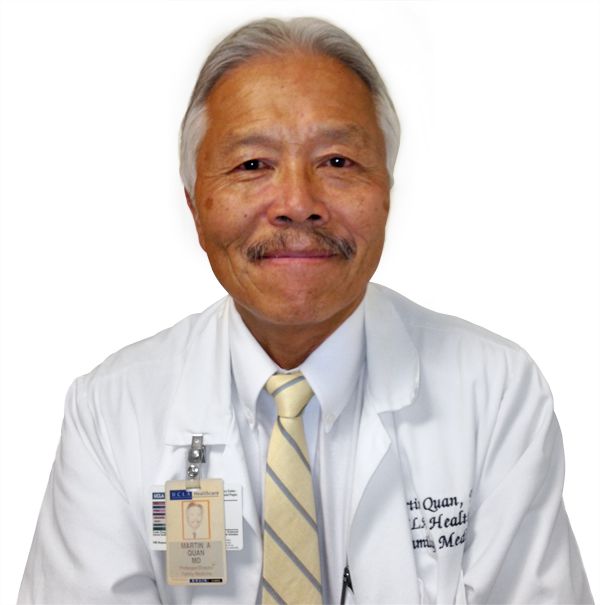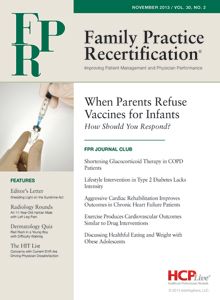Shedding Light on the Sunshine Act
A commonly used adage is "there's no such thing as a free lunch." Suffice it to say that in the wake of the Sunshine Act, there may be no such thing as an industry-provided "free lunch."

Martin Quan, MD
Editor-in-Chief
Unbeknown to most physicians, on August 1, 2013, all manufacturers of drugs, medical devices, and biologics that participate in US federal healthcare programs such as Medicare, Medicaid, and the Children’s Health Insurance Program (CHIP) became required to collect data in compliance with the terms of the Physician Payments Sunshine Act, which is more generally known as the Sunshine Act.
This federal statute, which stems from the national disclosure program described in section 6002 of the Affordable Care Act (ACA), requires manufacturers to collect and track payments and items of value that are given to physicians and teaching hospitals, as well as certain ownership interests held by physicians and their immediate family members. It requires manufacturers to submit annual reports of these transactions to the Secretary of the Department of Health and Human Services (HHS) Centers for Medicare & Medicaid Services (CMS), and it requires the Secretary to make the information available on a public, searchable website.
Although responsibility for reporting rests solely on manufacturers, the act has implications for the individual physician, as well. The statute calls for any physician who receives more than $10 in direct payment or items of value within a single transaction — or an annual total exceeding $100 from a single manufacturer — to have their name, business address, NPI, and specialty reported by the manufacturer to the HHS for inclusion on the website. Payment categories that require reporting include honoraria; gifts; entertainment; food, including catered meals in a medical practice; consulting fees; compensation for services other than consulting; travel; education; direct compensation for serving as faculty or a speaker for a medical education program; research; charitable contributions, as well as a royalty or license; current or prospective ownership or investment interest; and grants.
The act does allow for a limited number of exemptions from the reporting requirement. For example, food and beverages provided at conferences in settings where it would be difficult to establish the identities of the people partaking in the function won’t need to be reported, although a plated meal with “more identifiable” consumers would.
Though the value of items like anatomic models given to physicians for the sole purpose of educating patients are also exempt, materials provided to educate physicians — such as medical textbooks and medical journals — are not excluded in the statute. Other exclusions include product samples intended solely for patient use; industry support for continuing medical education (CME) sponsored by CME providers and accredited by the Accreditation Council for Continuing Medical Education (ACCME), the American Osteopathic Association (AOA), the American Medical Association (AMA), the American Academy of Family Physicians (AAFP), and the American Dental Association’s Continuing Education Recognition Program (ADA CERP), provided that they strictly adhere to industry standards for commercial support; and indirect payments made to faculty of such CME activities.
So, what can the practicing physician expect? First of all, it’s likely that many of the perquisites and “freebies” provided to physicians and their office staff will diminish since the threshold for industry to provide them will be higher and more restrictive, given the new reporting requirements. Second, at any industry-supported activity, a physician may be asked to provide the personal data alluded to above. Finally, if such perquisites, “gifts,” or items of value are offered, it’s important to be fully aware that their acceptance holds the potential for full disclosure on the CMS website.
Although anyone can debate the merit or value of the Sunshine Act, it’s more difficult to argue against the transparency it provides, as well as its expressed intent to “discourage the development of inappropriate relationships and help prevent the increased and potentially unnecessary health care costs that can arise from such conflicts.”
A commonly used adage is “there’s no such thing as a free lunch.” Suffice it to say that in the wake of the Sunshine Act, there may be no such thing as an industry-provided “free lunch,” unless it’s possibly at a conference in a box or a buffet line.
Martin Quan, MD
Editor-in-Chief
Martin Quan, MD, is Professor of Clinical Family Medicine and Director of the Office of Continuing Medical Education at the David Geffen School of Medicine at UCLA. He is also a member of the Education Advisory Board and consultant to the Committee on Continued Professional Development of the California Academy of Family Physicians and a member of the Kidney Learning System Advisory Board of the National Kidney Foundation. In the past, Quan has served as Program Director of the UCLA Family Practice Residency Program, Co-Director of the UCLA Pre-Doctoral Program in Family Practice, Editor-in-Chief of Clinical Cornerstone, and Vice Chair of the Residency Review Committee in Family Practice for the Accreditation Council for Graduate Medical Education (ACGME).
